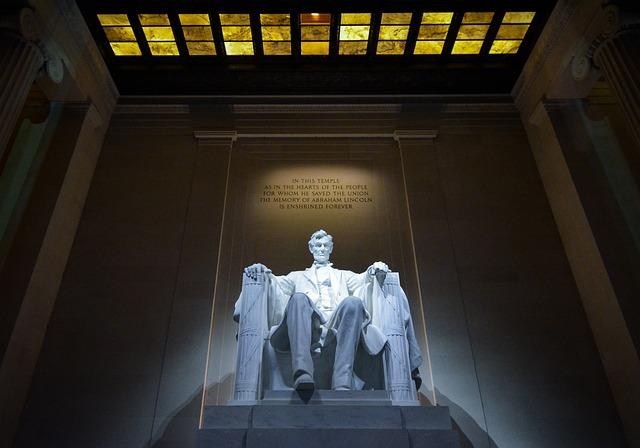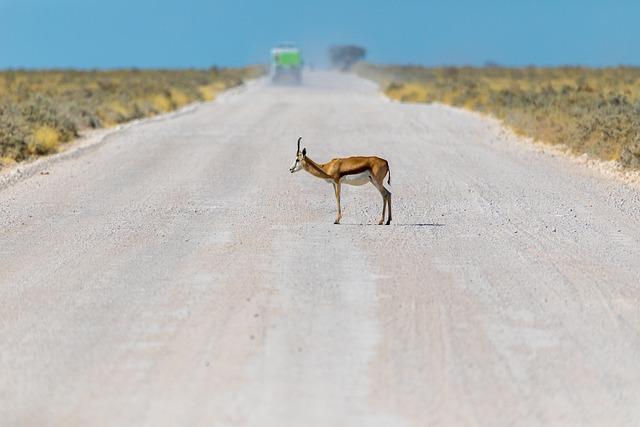Sam Nujoma, the revered anti-apartheid activist and Namibia’s inaugural president, passed away at the age of 95, as reported by CBS News. Nujoma’s life and legacy are deeply intertwined with Namibia’s struggle for independence and the fight against social injustice, marking him as a pivotal figure in both national and regional history. As the founding leader of the South West africa People’s Organization (SWAPO), he played a crucial role in advocating for the rights of the Namibian people, ultimately leading to the country’s liberation from colonial rule in 1990. Nujoma’s steadfast commitment to democracy and human rights has made him a symbol of resilience not only in Namibia but across the African continent. This article delves into his remarkable journey, contributions to the anti-apartheid movement, and the enduring impact of his leadership on Namibia and beyond.
Legacy of Sam Nujoma in the Fight Against Apartheid
Sam Nujoma’s extensive efforts against apartheid were instrumental in the liberation of Namibia from colonial rule and the subsequent establishment of a democratic government. As a founding member of the SWAPO (South west Africa People’s Organization), he galvanized support for the anti-colonial struggle, fostering unity among various ethnic groups. His leadership during the liberation war not only inspired a generation of Namibians but also drew international attention to the plight of the oppressed. Nujoma’s collaboration with other anti-apartheid activists, including leaders from South Africa and across Southern Africa, was pivotal, culminating in diplomatic pressures that ultimately dismantled the apartheid regime.
The principles Nujoma championed extended beyond mere resistance; he emphasized the importance of education, social justice, and human rights as foundational elements of a post-colonial society. Under his presidency, Namibia adopted a constitution that guaranteed civil liberties and equality, setting a precedent for the region. His legacy is encapsulated in key achievements such as:
- Establishment of a democratic governance framework
- Promotion of national reconciliation
- Pioneering land reform initiatives
Through thes milestones, Nujoma’s influence transcended national borders, serving as an enduring symbol of resistance against oppressive regimes. Notably, his dedication to the Pan-African movement cemented his status as a global figure in the fight for freedom and equality.

Impact of Nujoma’s Presidency on Namibia’s Political Landscape
Sam Nujoma’s leadership during the formative years of Namibia’s independence significantly shaped the nation’s political landscape. His presidency marked a transition from colonial rule to democratic governance,fostering a sense of national identity and unity among the diverse ethnic groups within Namibia. Notable achievements during his tenure included:
- Establishment of Democratic Institutions: Nujoma’s presidency laid the groundwork for a multiparty political system, ensuring the participation of various political entities in governance.
- Economic Reform: Initiatives aimed at rebuilding the economy, focusing on land redistribution and increased access to education and healthcare.
- Promotion of international Relations: Nujoma was instrumental in nurturing diplomatic ties, securing Namibia’s place within the African Union and fostering connections with global powers.
However, Nujoma’s presidency was not without criticism. Allegations of authoritarian tendencies and the consolidation of power within the ruling SWAPO party raised concerns about the state of democracy in Namibia. as the years progressed, his legacy became a subject of debate, illustrating the complexities of leadership in a nation emerging from decades of conflict. Key points of contention included:
- Political Suppression: Reports of opposition party members facing intimidation and harassment.
- Corruption Allegations: Questions regarding the management of resources and transparency within the government.
- Socioeconomic Disparities: Ongoing challenges in addressing inequalities that persisted post-independence.

Recognition and Tributes from Global leaders Following His Passing
Following the news of Sam Nujoma’s passing, leaders from around the world expressed their condolences and paid tribute to the legacy of the man who played a pivotal role in Namibia’s fight for independence and the broader struggle against apartheid. United Nations Secretary-General AntĂłnio Guterres remarked on Nujoma’s commitment to human rights and dignity,emphasizing that his efforts in advocating for equality would resonate for generations to come. Similarly, the South African president Cyril Ramaphosa highlighted Nujoma’s courageous leadership, stating that he was not only a freedom fighter but also a father figure to many who sought justice in a divided world.
international tributes poured in, reflecting on Nujoma’s far-reaching influence and the principles he stood for.European Union Commission President Ursula von der Leyen praised his dedication to peace and democracy, asserting that his vision laid the groundwork for a more inclusive Namibia and inspired countless global leaders to pursue similar paths. Notably,a brief summary of sentiments expressed by various leaders is captured in the table below:
| Leader | Country/Organization | Tribute |
|---|---|---|
| António Guterres | United Nations | echoes of Nujoma’s fight for human rights will endure. |
| Cyril Ramaphosa | South Africa | A courageous leader and father figure for justice. |
| Ursula von der Leyen | European Union | Nujoma’s vision inspired democracy and peace. |

Reflections on Nujoma’s Role in Namibia’s Journey to Independence
Sam Nujoma’s indelible mark on Namibia’s path to freedom is etched in the country’s collective memory. As a prominent anti-apartheid activist and a key figure in the fight against colonialism, Nujoma dedicated his life to the struggle for independence, leading the South West African People’s Organization (SWAPO) and advocating for the rights of the Namibian people. His unwavering commitment to the cause not only inspired generations but also mobilized grassroots movements that galvanized widespread support against oppressive regimes. The impact of his leadership can be seen in the pivotal events of the 1980s leading up to Namibia’s official independence in 1990.
Throughout his tenure, Nujoma demonstrated an exceptional ability to unite diverse groups under a common goal, which was crucial in dealing with the complex political landscape of southern Africa. His legacy is characterized by notable achievements,including:
- Pioneering diplomatic efforts that escalated international awareness of Namibia’s plight.
- Fostering unity among various liberation factions, thereby strengthening the anti-colonial movement.
- Establishing namibia’s identity post-independence, promoting social cohesion despite the nation’s divided past.
In reflecting on Nujoma’s contributions, it is indeed essential to acknowledge how they laid the foundation for Namibia’s emerging democracy. His policies focused on reconciliation, nation-building, and socio-economic development, empowering Namibia to embrace its newfound status on the global stage.
The Future of Namibia’s Political Identity after Nujoma’s Death
The passing of Sam Nujoma, Namibia’s first president and a pivotal figure in its fight against apartheid, has opened up a dialog about the future of the nation’s political identity. As a leader who shaped Namibia’s journey toward independence, his legacy serves as both a foundation and a challenge. Facing a changing political landscape, the country now grapples with the implications of his death for its governance and national cohesion. The eroding dominance of the South West Africa People’s Organization (SWAPO), the party Nujoma once led, raises questions about how new generations of leaders will redefine national priorities and identity in the coming years.
In reflecting on the path forward,several key areas demand attention:
- Generational Shift: Emerging leaders from younger demographics seek to address contemporary issues,diverging from the revolutionary narratives of the past.
- Ethnic and Cultural Identity: Increasing focus on the diverse ethnic composition of Namibia may encourage pluralism and a reconsideration of national identity.
- Economic Challenges: As Namibia faces significant economic hurdles, new policies may prioritize growth and sustainability, potentially reshaping political alliances and agendas.
Furthermore,it’s essential to consider how Nujoma’s legacy will continue to influence public sentiment and policy. The table below highlights potential pathways for Namibia’s political evolution post-Nujoma:
| Potential Pathways | Description |
|---|---|
| Increased Pluralism | Empowerment of various parties, leading to a more inclusive political environment. |
| Decentralized Governance | Promotion of local autonomy to better address regional disparities and needs. |
| sustainability Focus | Shift towards policies that prioritize environmental concerns alongside economic growth. |

Lessons from Nujoma’s Leadership for Emerging African Leaders
Sam Nujoma’s leadership offers a wealth of insights for emerging African leaders looking to navigate the complexities of governance and nation-building. His steadfast commitment to liberation and equality in Namibia exemplifies the importance of a clear and unwavering vision. Leaders can learn from his ability to mobilize grassroots support through inclusive approaches, ensuring that the voices of marginalized communities are heard.His resilience in the face of adversity demonstrates the need for persistence and integrity in leadership, despite the challenges that may arise in pursuit of justice and national unity.
Moreover, Nujoma showcased the significance of collaboration and diplomacy in achieving political goals. His relationships with other anti-colonial movements fostered a collective strength, illustrating the potential benefits of building alliances across borders. Future leaders should also take note of his approach to national identity, emphasizing the importance of cultural heritage in fostering unity. By prioritizing education and empowerment, Nujoma laid the groundwork for a generation of Namibians who are equipped to contribute meaningfully to society. This legacy serves as a reminder that true leadership is not merely about holding power, but about using that power to uplift others.

The Way Forward
the passing of Sam Nujoma marks the end of an era for Namibia, the country he helped to liberate from apartheid rule and led as its first president. His unwavering commitment to freedom and justice shaped the national identity and political landscape of Namibia, leaving a legacy that will be remembered for generations to come. Nujoma’s contributions as an anti-apartheid activist and his pivotal role in the nation’s independence underscore the profound impact of his leadership. As Namibia reflects on the life and achievements of this iconic figure, the world is reminded of the enduring struggle for human rights and equality. Sam Nujoma’s journey, from a freedom fighter to the helm of a nation, serves as a poignant reminder of the transformative power of courage and resilience in the face of oppression.







